| Listing 1 - 8 of 8 |
Sort by
|

ISSN: 11504129 ISBN: 2251339051 9782251339054 Year: 1990 Publisher: Paris: Les Belles Lettres,
Abstract | Keywords | Export | Availability | Bookmark
 Loading...
Loading...Choose an application
- Reference Manager
- EndNote
- RefWorks (Direct export to RefWorks)
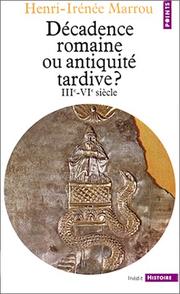
ISBN: 2020047136 9782020047135 Year: 1977 Volume: 29 Publisher: Paris: Seuil,
Abstract | Keywords | Export | Availability | Bookmark
 Loading...
Loading...Choose an application
- Reference Manager
- EndNote
- RefWorks (Direct export to RefWorks)
Roman history --- anno 500-599 --- anno 1-499 --- Regression (Civilization) --- Décadence --- Rome --- History --- Civilization --- Histoire --- Civilisation --- 937.09 --- #GOSA:II.P.AU.1 --- #BIBC:bibl.Reekmans --- #GGSB: Geschiedenis (oudheid) --- Geschiedenis van Rome: verdeling en val van Rome--(395-476) --- -Rome --- -937.09 --- 937.09 Geschiedenis van Rome: verdeling en val van Rome--(395-476) --- -Regression (Civilization) --- Décadence --- Europe --- Geschiedenis (oudheid) --- Rome - History - Empire, 284-476 --- Empire romain --- Histoire ancienne --- Moyen age --- Histoire medievale --- 284-476 (empire)
Book
ISBN: 9783515089890 3515089896 Year: 2007 Volume: 194 Publisher: Stuttgart: Steiner,
Abstract | Keywords | Export | Availability | Bookmark
 Loading...
Loading...Choose an application
- Reference Manager
- EndNote
- RefWorks (Direct export to RefWorks)
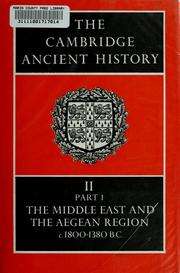
ISBN: 0521263352 9780521301992 0521301998 0521302005 0521325919 9780521325912 9780521302005 9780521263351 9781139053921 9781139054416 9781139054393 9781139054409 Year: 2000 Volume: 11 Publisher: Cambridge: Cambridge university press,
Abstract | Keywords | Export | Availability | Bookmark
 Loading...
Loading...Choose an application
- Reference Manager
- EndNote
- RefWorks (Direct export to RefWorks)
History, Ancient. --- History, Ancient --- 930 --- Ancient history --- Ancient world history --- World history --- History Ancient world --- Roman history --- anno 400-499 --- anno 300-399 --- anno 500-599 --- 937.09 --- #GOSA:II.P.AU.1 --- #GOSA:II.P.Alg.M --- 930 Geschiedwetenschap. Hulpwetenschappen der geschiedenis --- Geschiedwetenschap. Hulpwetenschappen der geschiedenis --- 937.09 Geschiedenis van Rome: verdeling en val van Rome--(395-476) --- Geschiedenis van Rome: verdeling en val van Rome--(395-476) --- History Ancient world Italy 395-476 A.D. --- 930 Science of history. Historiography --- Science of history. Historiography --- History Ancient world Italy 395-476 A.D --- Acqui 2006
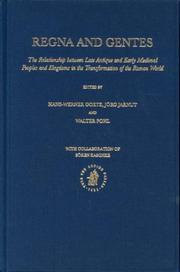
ISBN: 9004125248 9786610914654 9047404254 1280914653 1429407077 9781429407076 9789047404255 6610914656 9789004125247 9789004125247 Year: 2002 Volume: 13 Publisher: Leiden ; Boston : Brill,
Abstract | Keywords | Export | Availability | Bookmark
 Loading...
Loading...Choose an application
- Reference Manager
- EndNote
- RefWorks (Direct export to RefWorks)
In the research on "The transformation of the Roman world" relatively little attention has been paid to the transformation of early medieval peoples and the development of their communities into kingdoms, and we lack a comparative study on this subject. The aim of this volume is, therefore, to examine the relationship between gens and regnum by systematically comparing the "Germanic" and non-Germanic successor states of the Roman Empire, a question that leads to important results about the role of ethnic processes and of political developments in the formation of the new kingdoms. By trying to answer leading questions, 16 authors (historians, archaeologists and linguists) deal with ten important kingdoms of this period and with their political and legal context (role of the Empire and the law-codes). An introduction to the subject and its inherent problems and a comparative conclusion summarizing the results completes the volume. Contributors: Javier Arce, Ann Christys, Evangelos Chrysos, Falko Daim, Hans-Werner Goetz, Matthias Hardt, Peter Heather, Jörg Jarnut, J.H.W.G. Liebeschuetz, Walter Pohl, Michael Schmauder, Isabel Velázquez, Ian N. Wood, Alex Woolf, Patrick Wormald, and Barbara Yorke.
937.09 --- 940.11 --- Germanic peoples --- -Ethnicity --- -Ethnic identity --- Group identity --- Cultural fusion --- Multiculturalism --- Cultural pluralism --- Germanic tribes --- Ethnology --- Indo-Europeans --- Teutonic race --- 940.11 Geschiedenis van Europa:--ca.375-843 --- Geschiedenis van Europa:--ca.375-843 --- 937.09 Geschiedenis van Rome: verdeling en val van Rome--(395-476) --- Geschiedenis van Rome: verdeling en val van Rome--(395-476) --- History --- Europe --- Council of Europe countries --- Eastern Hemisphere --- Eurasia --- -Politics and government. --- Politics --- Ethnicity --- Germains --- Ethnicité --- Histoire --- Politics and government --- Politique et gouvernement --- Ethnic identity --- Rome --- Politics and government. --- Ethnicité --- History. --- Histoire.
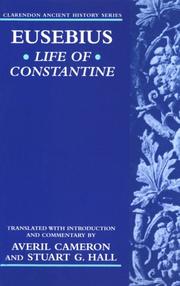
ISBN: 0198149247 0198149174 0198149714 9780198149248 Year: 2002 Publisher: Oxford: Clarendon,
Abstract | Keywords | Export | Availability | Bookmark
 Loading...
Loading...Choose an application
- Reference Manager
- EndNote
- RefWorks (Direct export to RefWorks)
Emperors --- Constantine --- Rome --- History --- Constantine I, Emperor of Rome --- 937.09 --- 276 =75 EUSEBIUS CAESARIENSIS --- -Rulers --- Sovereigns --- 937.09 Geschiedenis van Rome: verdeling en val van Rome--(395-476) --- Geschiedenis van Rome: verdeling en val van Rome--(395-476) --- Griekse patrologie--EUSEBIUS CAESARIENSIS --- Rim --- Roman Empire --- Roman Republic (510-30 B.C.) --- Romi (Empire) --- -Emperors --- Empereurs --- Biography --- Biographies --- Histoire --- Constantijn, --- Constantin, --- Constantin --- Constantine, --- Constantino --- Constantinus Flavius Valerius Aurelius, --- Constantinus --- Constantinus, --- Costantino --- Costantino, --- Flaviĭ Valeriĭ Avreliĭ Konstantin, --- Flavius Valerius Aurelius Constantinus Augustus, --- Flavius Valerius Aurelius Constantinus, --- Flavius Valerius Constantinus, --- Konstantin, --- Konstantin --- Kōnstantinos, --- Kōnstantinos --- Konstantyn, --- Kostandianos --- Κωνσταντίνος, --- Флавий Валерий Аврелий Константин, --- Константин --- Константин, --- Flavije Valerije Konstantin --- Emperors - Rome - Biography - Early works to 1800 --- Constantine - I, - Emperor of Rome, - d. 337 - Early works to 1800 --- Rome - History - Constantine I, the Great, 306-337 --- Constantine - I, - Emperor of Rome, - d. 337
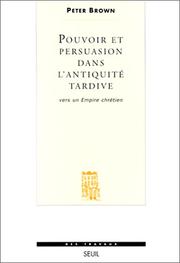
ISBN: 2020206056 9782020206051 Year: 1998 Publisher: Paris: Seuil,
Abstract | Keywords | Export | Availability | Bookmark
 Loading...
Loading...Choose an application
- Reference Manager
- EndNote
- RefWorks (Direct export to RefWorks)
Church history --- Power (Social sciences) --- Eglise --- Pouvoir (Sciences sociales) --- Histoire --- Rome --- History --- 937.08 --- 937.09 --- Geschiedenis van Rome: absolutistisch keizerrijk van Diocletianus tot de val van Rome--(284-476 n. Chr.) --- History Ancient world Italy 395-476 A.D. --- 937.08 Geschiedenis van Rome: absolutistisch keizerrijk van Diocletianus tot de val van Rome--(284-476 n. Chr.) --- Upper class --- Politics and government --- Social conditions --- Classes dirigeantes --- Évêques --- Église --- Pouvoir (sciences sociales) --- Christianisme et politique --- Pouvoir temporel --- Évêques --- Église --- Power (Social sciences) - Rome --- Upper class - Rome --- Rome - Politics and government - 284-476 --- Rome - Social conditions
Book
ISBN: 9789004291928 9789004291935 900429192X 9004291938 Year: 2015 Volume: 5 Publisher: Leiden ;Boston Brill
Abstract | Keywords | Export | Availability | Bookmark
 Loading...
Loading...Choose an application
- Reference Manager
- EndNote
- RefWorks (Direct export to RefWorks)
East and West in the Roman Empire of the Fourth Century examines the (dis)unity of the Roman Empire in the fourth century from different angles, in order to offer a broad perspective on the topic and avoid an overvaluation of the political division of the empire in 395. After a methodological key-paper on the concepts of unity, the other contributors elaborate on these notions from various geo-political perspectives: the role of the army and taxation, geographical perspectives, the unity of the Church and the perception of the divisio regni of 364. Four case-studies follow, illuminating the role of concordia apostolorum , antique sports, eunuchs and the poet Prudentius on the late antique view of the Empire. Despite developments to the contrary, it appears that the Roman Empire remained (to be viewed as) a unity in all strata of society.
Monarchy --- Emperors --- Christianity and politics --- Social change --- Monarchie --- Empereurs --- Christianisme et politique --- Changement social --- History --- History. --- Histoire --- Rome --- Kings and rulers. --- Politics and government --- Religion. --- Rois et souverains --- Politique et gouvernement --- Religion --- Epoque impériale romaine (Rome ; 30 av. J.-C.-476) --- 4e siècle --- Concorde --- Géopolitique --- Regions & Countries - Europe --- History & Archaeology --- Italy --- 937.08 --- 937.09 --- Rulers --- Sovereigns --- Heads of state --- Kings and rulers --- Kingdom (Monarchy) --- Executive power --- Political science --- Royalists --- Christianity --- Church and politics --- Politics and Christianity --- Politics and the church --- Change, Social --- Cultural change --- Cultural transformation --- Societal change --- Socio-cultural change --- Social history --- Social evolution --- Geschiedenis van Rome: absolutistisch keizerrijk van Diocletianus tot de val van Rome--(284-476 n. Chr.) --- Geschiedenis van Rome: verdeling en val van Rome--(395-476) --- Political aspects --- Europe --- 937.09 Geschiedenis van Rome: verdeling en val van Rome--(395-476) --- 937.08 Geschiedenis van Rome: absolutistisch keizerrijk van Diocletianus tot de val van Rome--(284-476 n. Chr.) --- Czars (Emperors) --- Tsars --- Tzars --- roman empire --- Berlin --- London --- Paris
| Listing 1 - 8 of 8 |
Sort by
|

 Search
Search Feedback
Feedback About UniCat
About UniCat  Help
Help News
News